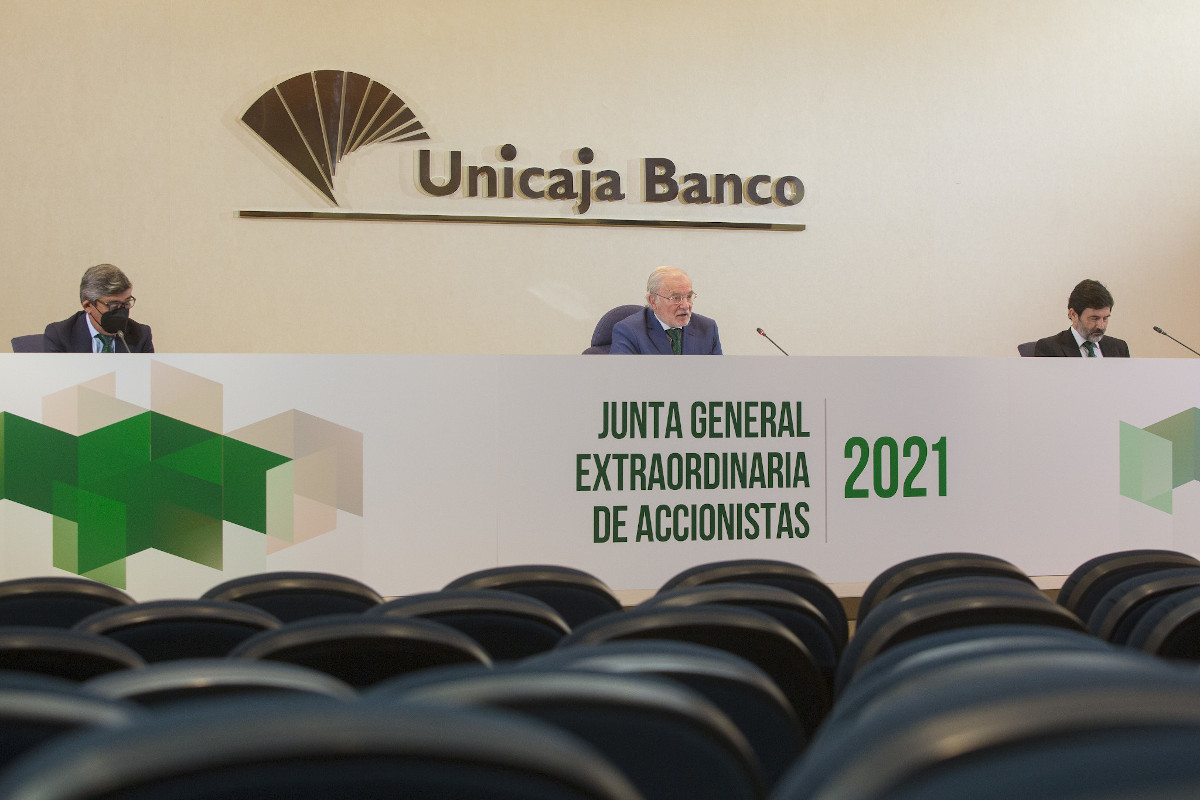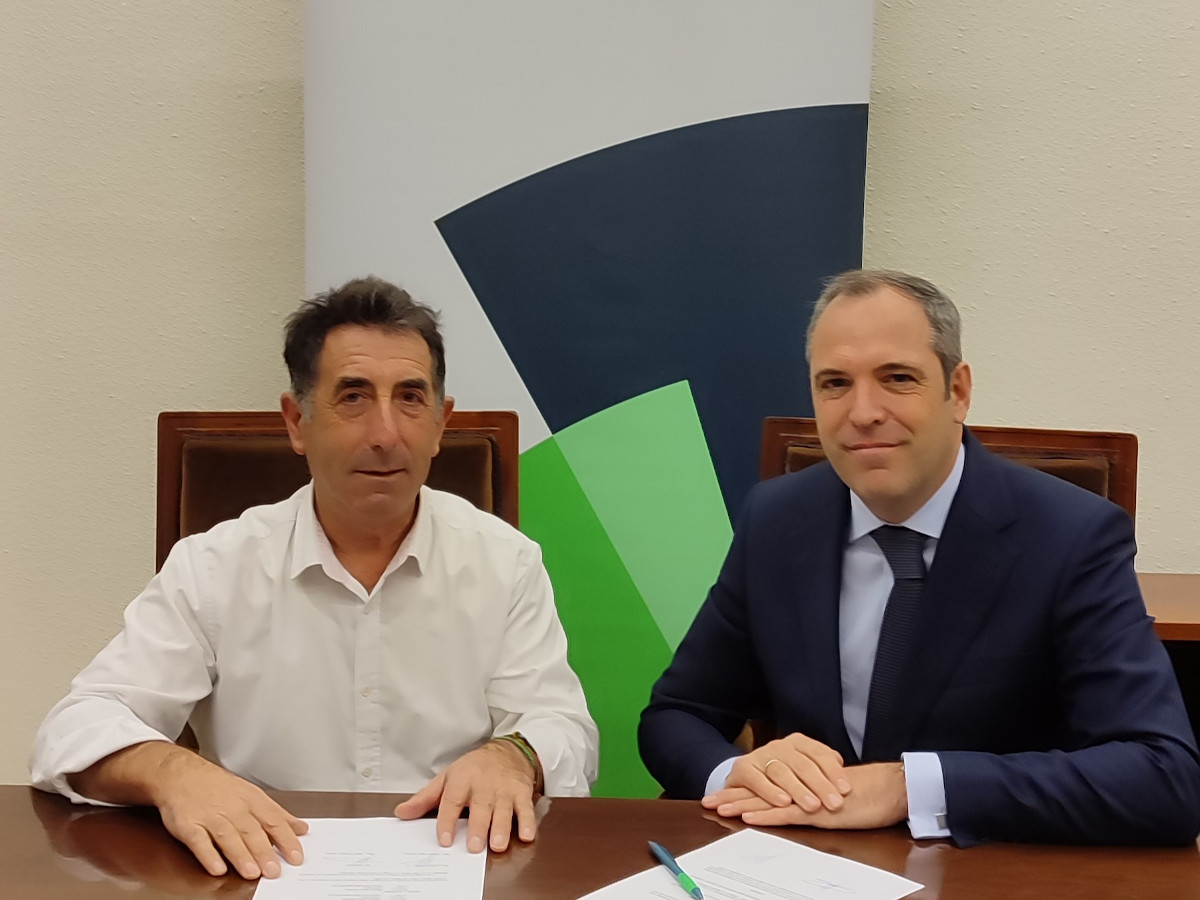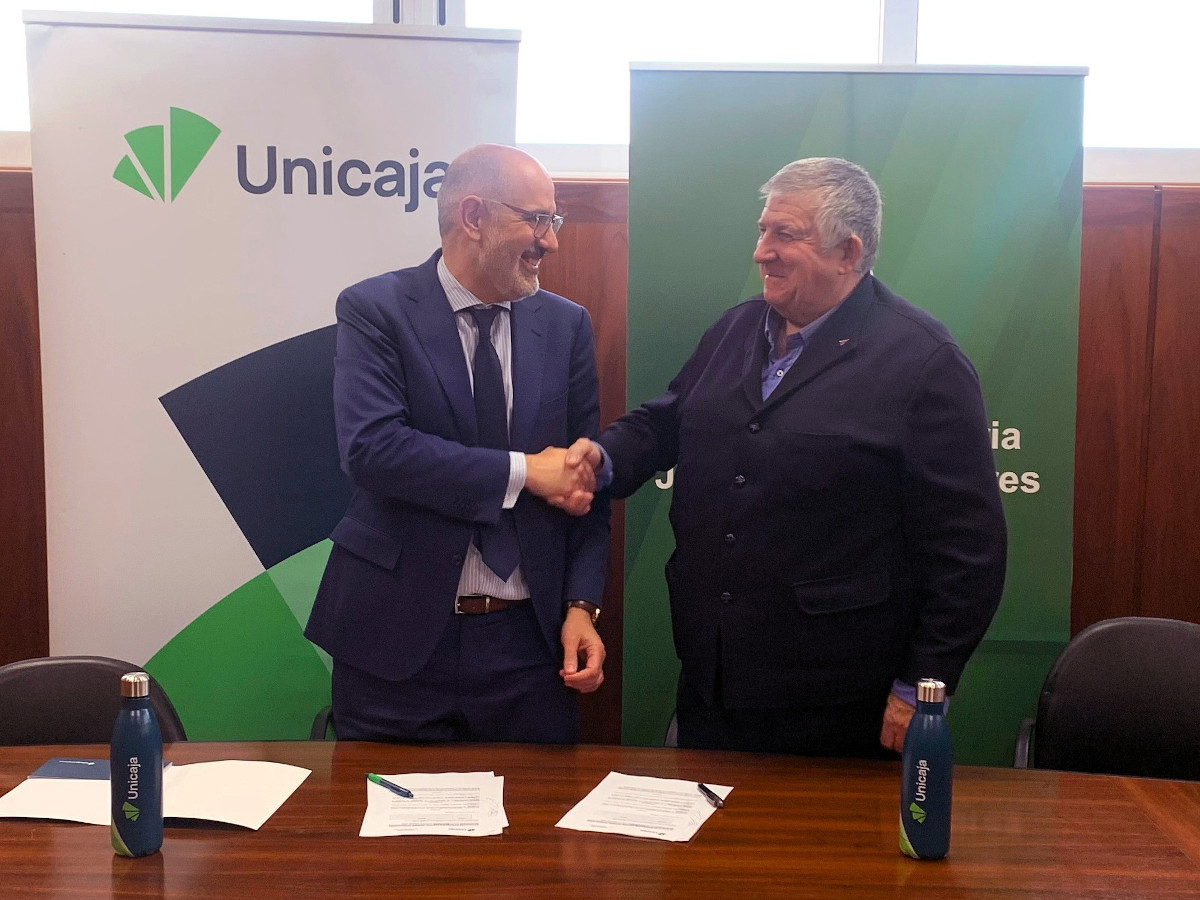Unicaja Banco and Liberbank have approved at the Extraordinary General Meetings of Shareholders held today the merger transaction under which Unicaja Banco will absorb Liberbank. Unicaja Banco has also approved the composition of the new Board of Directors post-merger, which will have 15 members. The support of both institutions’ shareholders, which takes place within the planned schedule and after the preparation of the Common Draft Terms of Merger by the Board of Directors of both banks on 29 December, is a significant step in the transaction, subject now to obtaining the mandatory regulatory authorizations. The Meetings of shareholders were held electronically following the recommendations and restrictions due to the COVID-19 pandemic.
Furthermore, the annual general meetings of both banks approved their respective 2020 accounts, the management of the Boards of Directors and the dividend distribution -which falls within the supervisor’s recommendation- in view of the balance quality and solvency position of Unicaja Banco and Liberbank. The Annual General Meeting of Shareholders of Unicaja Banco approved a dividend distribution with a charge to 2020 profit of 16.91 million euros, divided into a first tranche of 11.54 million euros, which will be paid to Unicaja Banco’s shareholders prior to the merger registration, in April 2021; and a second tranche of 5.36 million euros, to be paid after the registration of the merger in the Trade Register. Therefore, this second tranche would also benefit Liberbank shareholders who receive Unicaja Banco shares as a consequence of the exchange carried out due to the merger, provided that they remain as shareholders on the reference date of the said payment.
The Annual General Meeting of Liberbank approved the allocation of profits, which sets a dividend distribution with a charge to 2020 profit for an amount of 7.86 million euros, to be paid prior the registration of the merger.
Extraordinary Meetings and merger transactions: increased capacity to face challenges while maintaining values
Unicaja Banco’s Chairman, Manuel Azuaga, remarked in his speech at the Extraordinary Meeting of Shareholders that the approval of the merger by this body is a ‘crucial and significant milestone’ in the history of Unicaja Banco, and that it fits its strategic view and aspirations to improve its positioning. He added that the transaction ‘involves the creation of the fifth Spanish bank in terms of assets; it is conceived with the goals of providing value to shareholders, improving profitability and optimising the offering and quality of the service to customers; it will foster an increased capacity to face the challenges arising from the new models of relationship with customers, which require investments in technology and cultural changes; it will enable to strengthen the support to the country’s economic recovery, while maintaining as shared values that identify the bank closeness to customers and commitment to regions’.
Azuaga pointed out that ‘our historic evolution must give us the boost to face this project with eagerness and with the confidence in a sustainable business model that has proven to be highly skilled to generate results, to maintain a strengthened solvency position, a comfortable liquidity position and high coverage levels. And all with the application of a rigorous policy to contain and control costs’. In that sense, he remarked that ‘the combined entity will offer continuity and protection to the values and to the culture of Unicaja Banco, strong and exemplary in so many aspects, thanks too to the commitment and work of its human team, which has been key in the past and which, together with Liberbank staff, will be crucial in the future to ensure the success of this project’. ‘All of the above –he highlighted-, with the goal of fostering growth based on a better service to all the stakeholders’.
Azuaga also said that the merger transaction has as main advantages the alignment with the corporate goals, the achievement of a relevant positioning in the country, compatible with the maintenance of the commitment to regions, and the increase of the capacity to generate synergies. He explained that the merger project falls within the consolidation process in the Spanish financial sector, aligned too with the ECB view on sector consolidation, as it is based on a business and integration plan ‘that improves the sustainability of the business model and that meets high standards on governance and risk management’.
Azuaga highlighted, as a positive element in the merger materialization, that Unicaja Banco and Liberbank have previous broad experience in efficiently carrying out integrations of entities with similar business models of proximity banking, insisting that the will is to ‘maintain the closeness and confidence in the service to customers’ as part of the philosophy that is shared by both institutions.
Unicaja Banco’s Chairman also said that the merger fits the bank’s strategic view to face the ‘challenges and uncertainties arising from an economic and financial context that is putting an unprecedented pressure on the sector’s profitability and on the achievement of the financial goals, requirements which have increased due to the effects of the pandemic’. ‘Unicaja Banco has always been aware of the need to adapt to changes, which is now so strongly seen in the economic, technological and social paradigms’, he explained, ‘and that is why we have not given up in the search of levers with structural nature that allow us to position ourselves properly to compete in the new environment’.
In that regard, Azuaga remarked how the bank’s strengths have allowed it to consolidate its trajectory even in the stages of economic crisis: ‘Thanks to our strengths, we have been able to consolidate our position as credit institution since we were established as a bank at the end of 2011, despite facing a long phase of general economic crisis’. In particular, ‘during the last year, he added, Grupo Unicaja Banco has been able to continue with its historical trajectory of solvency and stability in an adverse time for the economy, marked by the effects of the pandemic’. He also said that ‘the said proven capacity does not waive us from focusing on analysis with a view to future’, and in that sense he mentioned as the main elements to consider in the future strategy: ‘profitable business growth, maintaining the prudence that has characterized our bank since its previous phase as savings bank. And that with the goal of fostering, in a structural manner, the provision of value to shareholders’.
At the Extraordinary General Meeting of Liberbank, the CEO, Manuel Menéndez, explained the rationale of the approved merger transaction, highlighting ‘the creation of a biggest bank, the fifth in the Spanish market, with a balanced commercial and business distribution, presence in 80% of the national territory, more than 4.5 million customers and a leading position in six autonomous regions’, that will allow ‘to improve profitability on the grounds of generation of gross cost synergies estimated in 192 million euros per year (in full from 2023), what will allow: to significantly improve the efficiency ratio, higher organic capital generation, substantial improvement of profitability and significant growth in the earnings per share, resulting in an increased capacity to remunerate shareholders’.
The merger transaction, Manuel Menéndez added, will also involve ‘a solid capital position, which after the restructuring costs and planned financial adjustments, would be the highest among the Spanish listed banks, with a fully loaded CET1 of 12.5% and with capacity to imminent increases due to the application of IRB models, once the corresponding authorizations from the ECB are received’. This will result in ‘the reinforcement of the solvency and coverages of the combined entity, which would reach the highest levels in NPL coverage ratio (72%) and foreclosed assets (69%) and which would have a NPL ratio of 3.6%, the second best among listed entities’, as well as on the ‘improvement in the capacity to face the investments that are required to deepen in digital transformation, and to turn to markets and attract investors in debt issuances and raising funds, to meet the MREL requirements’.
Manuel Menéndez added that ‘we have undertaken this process fully convinced that it will be positive for all the stakeholders: for stakeholders, due to the positive impact on earnings per share as the entity expects to be more profitable and efficient, which will result in higher organic capital generation to finance its growth, and higher recurring dividends; for customers, as the offering, accessibility and financial inclusion will improve, with a large territorial presence and higher capacity to face technology and digital banking evolution; and for employees, key players in this process of creation of a better bank’.
Liberbank’s Chairman, Pedro Rivero, expressed that the merger ‘fits the Bank’s strategic view as an appropriate alternative to face and anticipate the challenges and requirements arising from an economic and financial context that is putting an unprecedented pressure on the sector’s profitability and on the achievement of the financial goals, requirements which have increased due to the effects of the pandemic’.
Advances in the merger process and new Board of Directors
In relation to the process schedule, after the approval by the General Meetings of Shareholders of both institutions, the transaction is subject to obtaining the mandatory regulatory authorizations, expected for the end of the second quarter or early third quarter of 2021, as it was announced. Once the conditions precedent have been met and the merger has been formalized with the notarial instrument of merger and its corresponding registration in the Trade Register, the administrative process to carry out the exchange will start. From that moment, the phase of operational integration between both banks would start.
With regard to the composition of the new Board of Directors post-merger, it will be composed of 15 members: two executive directors, seven proprietary directors and six independent directors. The constitution of the new government body will be materialized through the partial renewal of the current Board of Unicaja Banco, as it is the absorbing entity. The Executive Chairman will be Manuel Azuaga, current Executive Chairman of Unicaja Banco, and the CEO will be Manuel Menéndez, current CEO of Liberbank.
In particular, of the seven proprietary directors of the combined entity, four will come from Unicaja Banco Board of Directors, and three from Liberbank Board. Four of the six independent directors will come from Unicaja Banco and two from Liberbank. So, after the merger, the Board of Directors will have the composition included in the annex. The combined entity’s Board will continue to meet the corporate governance standards with regard to presence of independent directors (40% of the total of members) and of female women (one third).
This merger transaction involves the creation of the fifth bank of the Spanish financial system per assets (nearly 113,000 million euros), with a broad and diversified presence throughout the country and leading position in six Autonomous Regions, with a solid and sound balance sheet (with significant positions in solvency, coverage and a low NPL ratio), and with a professional team with broad experience in generating value for shareholders through integration processes.
In fact, the combined entity will be present in 80% of the national territory, maintaining its referential position in Andalusia, Extremadura, Castilla y León, Castilla-La Mancha, Cantabria and Asturias, as well as being present in other markets such as Madrid, where the entities have a traditional presence.
As per the exchange ratio set in the Common Draft Terms of Merger, the current Unicaja Banco shareholders will hold 59.5% of the capital, and Liberbank shareholders, 40.5%. Under this transaction, Liberbank shareholders will receive 1 newly issued ordinary share of Unicaja Banco for each 2.7705 Liberbank shares.
The combined entity, which will maintain the corporate name of Unicaja Banco and will be headquartered in Malaga, aims to provide value to shareholders, improving profitability, as well as to improve the offering and quality of service to customers and to continue supporting the country’s economic recovery, while maintaining as shared values closeness and commitment to regions.
Annex. Composition of the new Board of Directors post-merger
The entity of origin is included in brackets.
Executive Directors:
· Manuel Azuaga Moreno, Executive Chairman (Unicaja Banco)
· Manuel Menéndez Menéndez, CEO (Liberbank)
Proprietary Directors:
· Juan Fraile Cantón (Unicaja Banco)
· Petra Mateos-Aparicio Morales (Unicaja Banco)
· Manuel Muela Martín-Buitrago (Unicaja Banco)
· Teresa Sáez Ponte (Unicaja Banco)
· Felipe Fernández Fernández (Liberbank)
· Ernesto Luis Tinajero Flores (Liberbank)
· David Vaamonde Juanatey (Liberbank)
Independent Directors:
· María Luisa Arjonilla López (Unicaja Banco)
· Ana Bolado Valle (Unicaja Banco)
· Manuel Conthe Gutiérrez (Unicaja Banco)
· Manuel González Cid (Unicaja Banco)
· Jorge Delclaux Bravo (Liberbank)
· María Luisa Garaña Corces (Liberbank)



